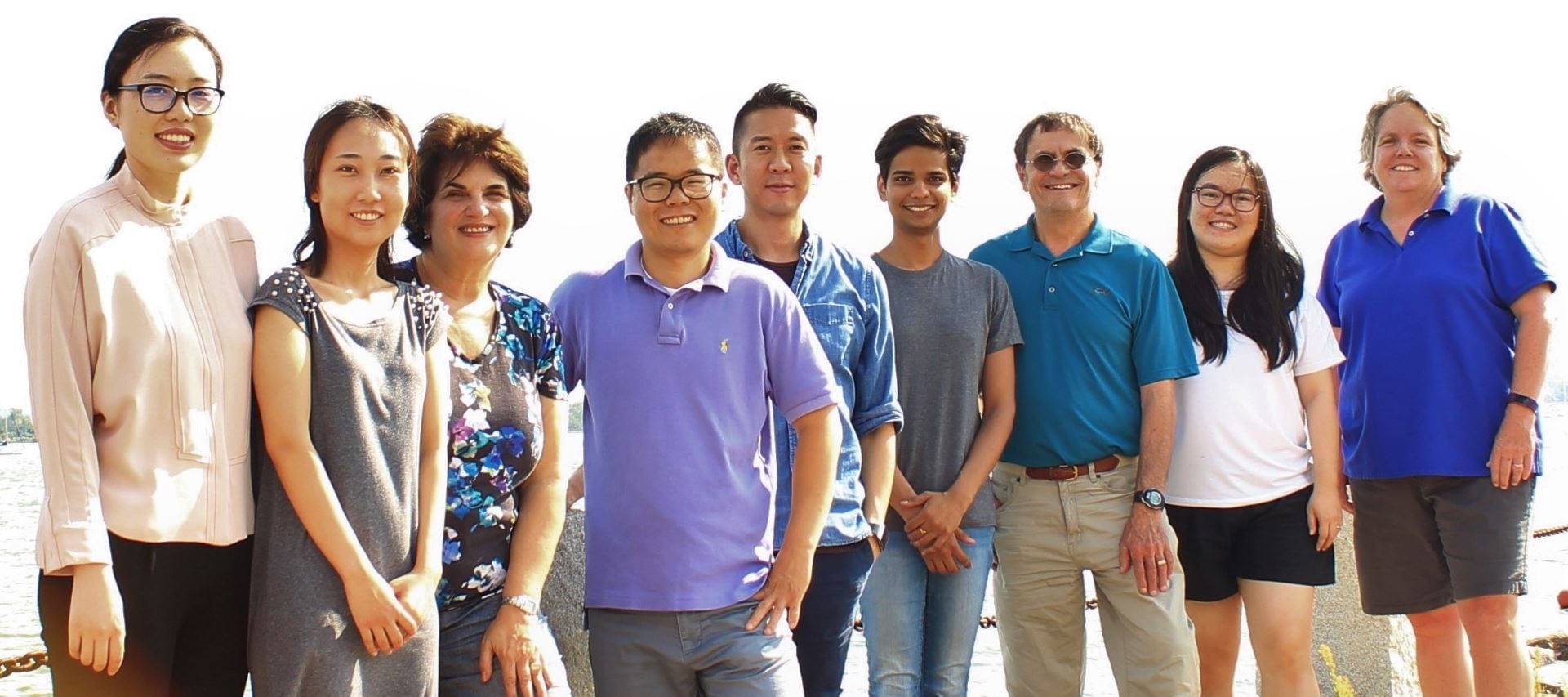
The Healthy Aging team, left to right: Wendy Wang PhD, Bon Kim, Nina Silverstein PhD, Jay Lee PhD, Sae Hwang Han, Shiva Prisad, Frank Porell PhD, Haowei Wang, Beth Dugan PhD. Team members not in photo: Natalie Pitheckoff and Evan Chunga.
A research team from the University of Massachusetts Boston has delivered a comprehensive new report on the health of older people in New Hampshire, along with detailed profiles of 244 communities in their state.
The first-ever New Hampshire Healthy Aging Data Report was prepared by researchers at the McCormack Graduate School’s Gerontology Institute, led by associate professor Beth Dugan. The report, funded by the Tufts Health Plan Foundation, was released April 2 at a legislative breakfast at the New Hampshire statehouse.
“We are all aging,” said Dugan. “Identifying and understanding the gaps in healthy aging will allow communities to continue to adapt, improving quality of life for all New Hampshire residents.”
The report provides Community Profiles for cities and towns across the state, including neighborhoods in Manchester and Nashua. More than 164 statewide health indicator maps show the distribution of disease, health behaviors and the extent to which health varies by zip code across the state.
“Towns and cities can use the resources in the report to inform decisions about economic development, public health, housing and transportation,” said Nora Moreno Cargie, president of Tufts Health Plan Foundation and vice president for Corporate Citizenship at Tufts Health Plan. “The data will help make their communities work for older people, and when that’s true, the communities will work for younger people, too.”
It’s estimated that by 2030, one of every five people in the United States will be over age 65. This demographic change already is apparent in New Hampshire where 20% of residents—about 301,000 people—are over the age of 60.
“How we age is influenced by where we live, how we work, the health care we receive, and our experiences of daily living,” said Jennifer Rabalais from the New Hampshire Alliance for Healthy Aging (AHA).
“Strong communities are the backbone of healthy aging,” she said. “While New Hampshire is ranked among the healthiest states for older people, disparities remain. AHA will share the data in this report with community leaders and policymakers to identify opportunities to address these disparities and to build on existing community strengths.”
Disparities in population health across communities in New Hampshire “illustrate that residential patterns play an important role in shaping how broad societal factors, such as socioeconomic disparities, the social environment and the spatial organization of health services influence the health of individuals,” said UMass Boston professor emeritus Frank Porell, a co-investigator who helped prepare the report.
UMass Boston gerontology professor Nina Silverstein, also a co-investigator, said the report can help policy makers and service providers make informed decisions about priority areas and where to allocate resources.
“For example, what communities are in need of vaccinations or could benefit from long-range strategies to address obesity and diabetes? Where are mental health concerns on the rise?” she said.
The New Hampshire Healthy Aging Report is the third such state research report prepared by Dugan’s team and supported by the Tufts Health Plan Foundation. Other reports have covered healthy aging in Massachusetts and Rhode Island.
“We are grateful for the financial support of the Tufts Health Plan Foundation that allows us to create tools that ignite and accelerate social change for more age-friendly communities,” Dugan said.
The research team includes postdoctoral fellows Jay Lee, Wendy Wang, and graduate gerontology students: Bon Kim, Haowei Wang, Natalie Pitheckoff, Evan Chung, Sae Hwang Han, and Shiva Prasad.

Leave a Reply